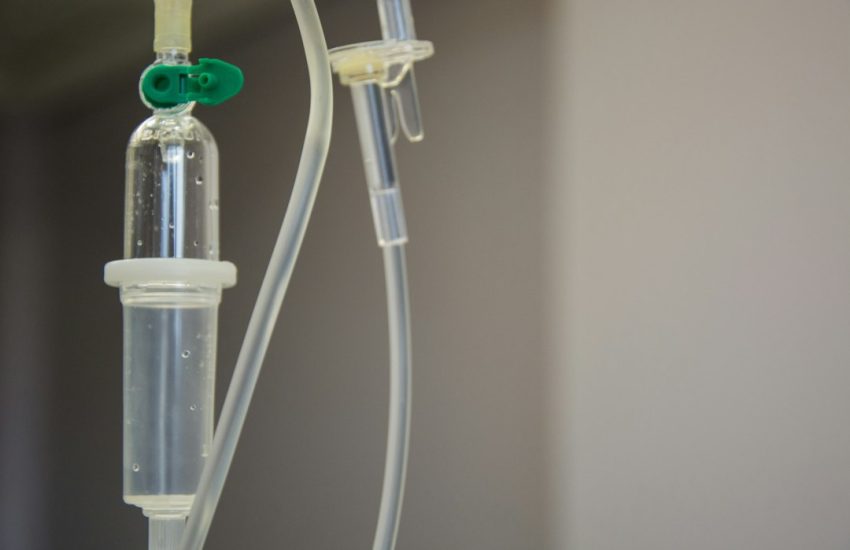The Shocking Truth About Energy Drinks: How They Can Negatively Impact Your Health
Energy drinks have become a staple in the lives of many young adults seeking a quick boost of energy to power through their busy days. The history of energy drinks dates back to the 1960s, with the introduction of beverages like Red Bull in the 1980s. Since then, the market for energy drinks has exploded, with a wide variety of brands and flavors available to consumers. These beverages are particularly popular among young adults, who often turn to them to combat fatigue, increase alertness, and enhance performance.
Contents
- 1 The Ingredients in Energy Drinks: What You Need to Know
- 2 The Dangers of Caffeine Overload
- 3 Sugar Rush: The Harmful Effects of High Sugar Content
- 4 Energy Drinks and Your Heart: The Risks of Increased Blood Pressure and Heart Palpitations
- 5 The Link Between Energy Drinks and Dehydration
- 6 Energy Drinks and Insomnia: How They Affect Your Sleep
- 7 Energy Drinks and Mental Health: The Connection to Anxiety and Depression
- 8 The Risks of Mixing Energy Drinks with Alcohol
- 9 The Importance of Limiting Energy Drink Consumption for Your Health
- 10 FAQs
Key Takeaways
- Energy drinks contain ingredients that can be harmful to your health
- Caffeine overload can lead to dangerous side effects
- High sugar content in energy drinks can cause harm to your body
- Energy drinks can increase blood pressure and cause heart palpitations
- Energy drinks can lead to dehydration and affect your sleep and mental health
The Ingredients in Energy Drinks: What You Need to Know
Energy drinks typically contain a mix of ingredients designed to provide a quick energy boost. Common components include caffeine, taurine, and guarana. Caffeine is a stimulant that can increase alertness and improve concentration. Taurine is an amino acid that may help regulate heartbeat and muscle contractions. Guarana is a plant extract that contains caffeine and is believed to enhance energy levels. While these ingredients can provide a temporary energy boost, it’s important to be aware of their potential effects on the body.
The Dangers of Caffeine Overload
Many energy drinks contain high levels of caffeine, with some brands packing as much caffeine as several cups of coffee in a single serving. Consuming too much caffeine can lead to symptoms of overdose, including rapid heartbeat, jitteriness, and anxiety. In severe cases, caffeine overdose can result in heart palpitations, seizures, or even death. Long-term consumption of high levels of caffeine can also have negative effects on the body, such as increased blood pressure and a higher risk of heart disease.
Sugar Rush: The Harmful Effects of High Sugar Content
| Topic | Data/Metrics |
|---|---|
| Prevalence of high sugar intake | More than 70% of adults and children in the US consume more than the recommended daily intake of added sugars |
| Health risks associated with high sugar intake | Increased risk of obesity, type 2 diabetes, heart disease, and dental problems |
| Effects on brain function | High sugar intake can lead to impaired cognitive function and increased risk of depression and anxiety |
| Hidden sources of sugar | Sugar is often added to processed foods and drinks, even those marketed as “healthy” or “low-fat” |
| Recommended daily intake of added sugars | The American Heart Association recommends no more than 6 teaspoons (25 grams) of added sugars per day for women and 9 teaspoons (38 grams) for men |
In addition to caffeine, many energy drinks are loaded with sugar to enhance their taste and provide a quick source of energy. Some popular brands contain staggering amounts of sugar, far exceeding the recommended daily intake. Excessive sugar consumption can lead to weight gain, tooth decay, and an increased risk of chronic conditions like diabetes and heart disease. The link between high sugar intake and obesity is well-established, making it crucial for consumers to be mindful of their sugar consumption when choosing energy drinks.
Energy Drinks and Your Heart: The Risks of Increased Blood Pressure and Heart Palpitations
The combination of caffeine and sugar in energy drinks can have a significant impact on heart health. Caffeine is known to increase blood pressure and heart rate, which can be dangerous for individuals with underlying heart conditions. Consuming energy drinks regularly may lead to elevated blood pressure levels and an increased risk of heart palpitations or arrhythmias. Prolonged exposure to these effects could potentially contribute to the development of heart disease over time.
The Link Between Energy Drinks and Dehydration

Despite their reputation for providing a quick burst of energy, energy drinks can actually contribute to dehydration. Caffeine is a diuretic that can increase urine production and lead to fluid loss. When consumed in excess, energy drinks may disrupt the body’s natural hydration balance, potentially causing symptoms like dry mouth, dizziness, and fatigue. To maintain proper hydration levels, it’s essential to prioritize water intake over energy drinks and other caffeinated beverages.
Energy Drinks and Insomnia: How They Affect Your Sleep
The stimulating effects of caffeine in energy drinks can interfere with sleep patterns and contribute to insomnia. Consuming these beverages late in the day or in excessive amounts may make it difficult to fall asleep or stay asleep throughout the night. Chronic sleep deprivation can have serious consequences for overall health and well-being, including impaired cognitive function, mood disturbances, and an increased risk of chronic conditions like obesity and heart disease. To promote better sleep quality, it’s advisable to limit caffeine intake in the hours leading up to bedtime.
Energy Drinks and Mental Health: The Connection to Anxiety and Depression
While energy drinks are often marketed as mood enhancers that can boost focus and alertness, excessive consumption may have negative implications for mental health. The stimulating effects of caffeine can exacerbate symptoms of anxiety and contribute to feelings of restlessness or agitation. In some cases, individuals who consume large amounts of caffeine may experience heightened levels of stress or even panic attacks. Additionally, the crash that follows the initial energy boost from these beverages can lead to feelings of fatigue or low mood, potentially worsening symptoms of depression.
The Risks of Mixing Energy Drinks with Alcohol
Combining energy drinks with alcohol is a dangerous practice that can have serious consequences for health and safety. While the stimulating effects of caffeine may mask the depressant effects of alcohol initially, this combination can lead to risky behaviors like excessive drinking or impaired judgment. Mixing energy drinks with alcohol has been associated with an increased risk of alcohol poisoning, accidents, and even death. It’s crucial for individuals to avoid this potentially lethal combination and prioritize responsible drinking habits.
The Importance of Limiting Energy Drink Consumption for Your Health
In conclusion, while energy drinks may offer a temporary boost in energy and alertness, they also come with a host of potential risks for health and well-being. From the dangers of caffeine overload to the harmful effects of high sugar content, these beverages can have far-reaching implications for physical health, mental well-being, and overall quality of life. To protect your health, it’s essential to be mindful of your consumption of energy drinks and prioritize moderation in your beverage choices. By staying informed about the risks associated with these popular beverages and making conscious decisions about your intake, you can safeguard your health and well-being for the long term.
Energy drinks have become a popular choice for many individuals seeking a quick boost of energy. However, the consumption of these beverages can have significant impacts on one’s health. According to a recent article on Stay Healthy Magazine, high consumption of energy drinks has been linked to increased blood sugar levels, which can lead to various health issues. It is essential to be aware of the potential risks associated with these beverages and consider healthier alternatives for sustained energy levels.
FAQs
What are energy drinks?
Energy drinks are beverages that contain high levels of caffeine, sugar, and other stimulants such as taurine, guarana, and ginseng. They are marketed as a quick and easy way to boost energy and improve mental alertness.
How do energy drinks affect your health?
Energy drinks can have negative effects on your health, including increased heart rate, high blood pressure, anxiety, insomnia, and dehydration. They can also lead to addiction, and in rare cases, even death.
What are the long-term effects of consuming energy drinks?
Long-term consumption of energy drinks can lead to serious health problems such as heart disease, stroke, and diabetes. They can also cause damage to the liver, kidneys, and other organs.
Are energy drinks safe for children and teenagers?
Energy drinks are not recommended for children and teenagers due to their high caffeine and sugar content. They can cause hyperactivity, anxiety, and other health problems in young people.
What are some alternatives to energy drinks?
There are many healthier alternatives to energy drinks, such as drinking water, herbal tea, or natural fruit juices. Eating a balanced diet and getting enough sleep can also help boost energy levels naturally.



